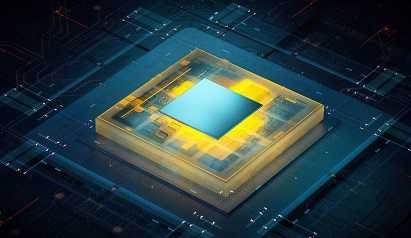
DARPA Funds the Development of Low-Noise Photonic Oscillators
The Defense Advanced Research Projects Agency (DARPA) awarded BAE Systems a $17.5 million contract for the Generating RF with Photonic Oscillators for Low Noise (GRYPHON) program. The technology developed through the program could enable an unprecedented combination of low noise, compact size, and frequency agility for next-generation airborne sensing and communications capabilities.
Electronic oscillators are the vital technology driving virtually all microelectronic systems. Currently, high performance requires large, power-hungry systems. BAE Systems’ approach will maintain or improve performance while reducing the system to the size of a quarter.
According to DARPA, the GRYPHON program will employ emerging innovations in optical frequency division, integrated photonics, and nonlinear optics. “Recent benchtop demonstrations using laser-based techniques have set world records in microwave phase noise,” DARPA said in a press release published last year. “In parallel, ongoing innovation in the fields of integrated photonics and nonlinear optics has enabled dramatic reductions in the size, weight, and power (SWaP) of key components needed to implement photonic oscillators. This includes chip-scale laser resonators with high-quality factors and optical frequency combs.”
“By implementing advances in photonic microwave generation with integrated photonics, we see a pathway to create a significant leap in microwave oscillator capability, while simultaneously realizing characteristics not found in today’s products: very low phase noise, compact form factor, ultrawideband tuning, and environmental robustness,” said Gordon Keeler, DARPA microsystems technology officer program manager, in the 2021 release. “Through GRYPHON, we hope to realize a major increase in capability for next-generation radar and communications systems.”
BAE Systems’ solution combines the efficiency and agility of digital electronics, and the bandwidth and stability of photonics to deliver precision microwave sources in an unprecedentedly small form factor. This drastically improves size, weight, power, and cost, and allows this next-generation, mission-critical technology to be deployed on smaller platforms, and it creates a new category of systems, the company said.

BAE Systems’ FAST Labs R&D organization was awarded a $17.5 million contract for the Generating RF with Photonic Oscillators for Low Noise (GRYPHON) program. BAE will work with GenXComm to develop the technology, which supports next-generation airborne sensing and communications capabilities. Courtesy of BAE Systems.
Work on the program, which is part of BAE Systems’ advanced electronics portfolio, includes collaboration with subcontractor GenXComm, an Austin, Texas-based company that is helping lead the photonics subsystem development for BAE Systems’ work on the GRYPHON program. GenXComm specializes in the development of advanced microphotonics for RF signal processing to enable high-throughput, ultralow-latency, interference-free, wireless mesh networks. The company combines radio components with integrated photonics to enable full duplex mesh nodes for private and enterprise 5G networks.
BAE Systems’ FAST Labs R&D organization is the research arm of BAE Systems’ Electronic Systems unit.
/Buyers_Guide/BAE_Systems_Electronic_Systems/c1447